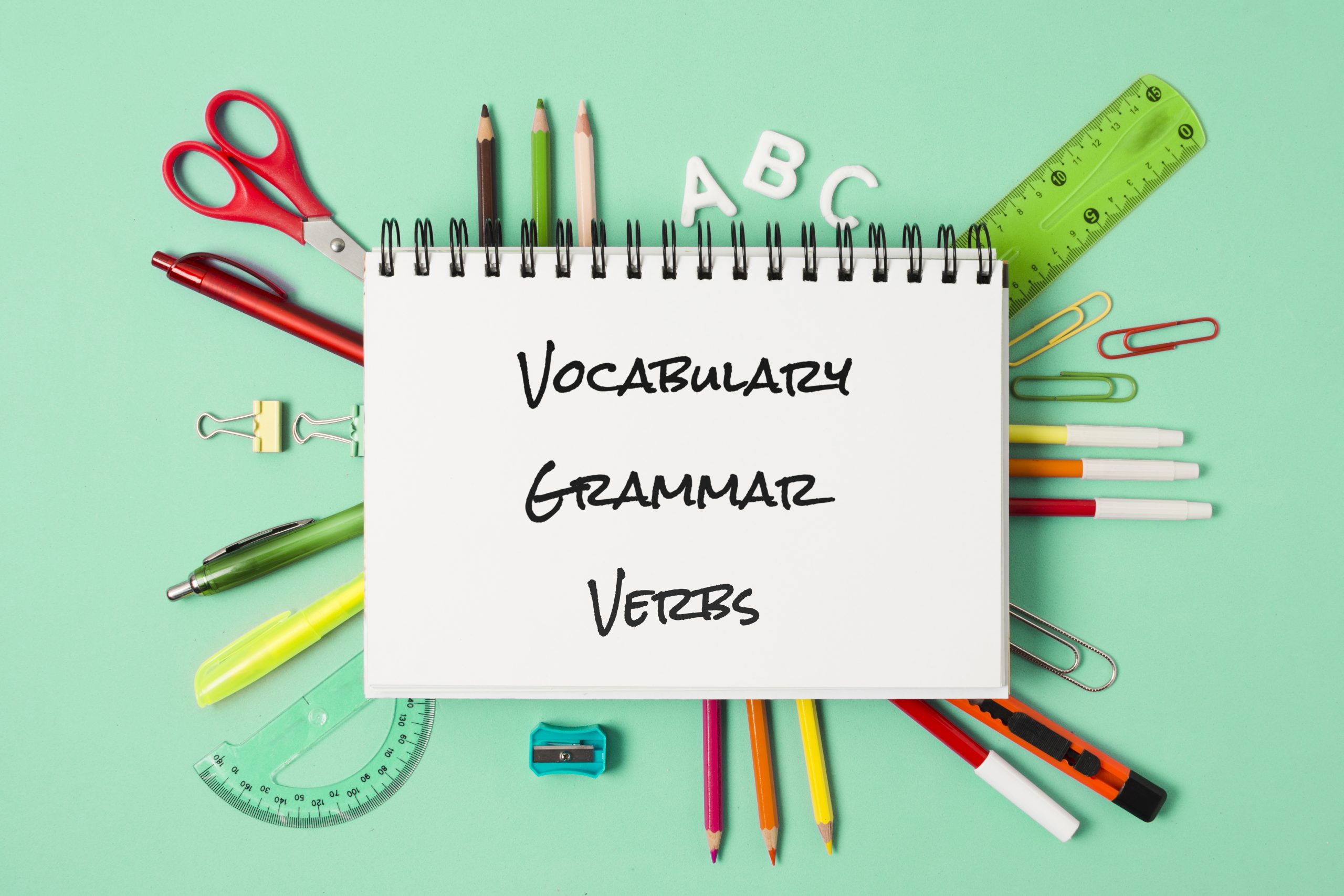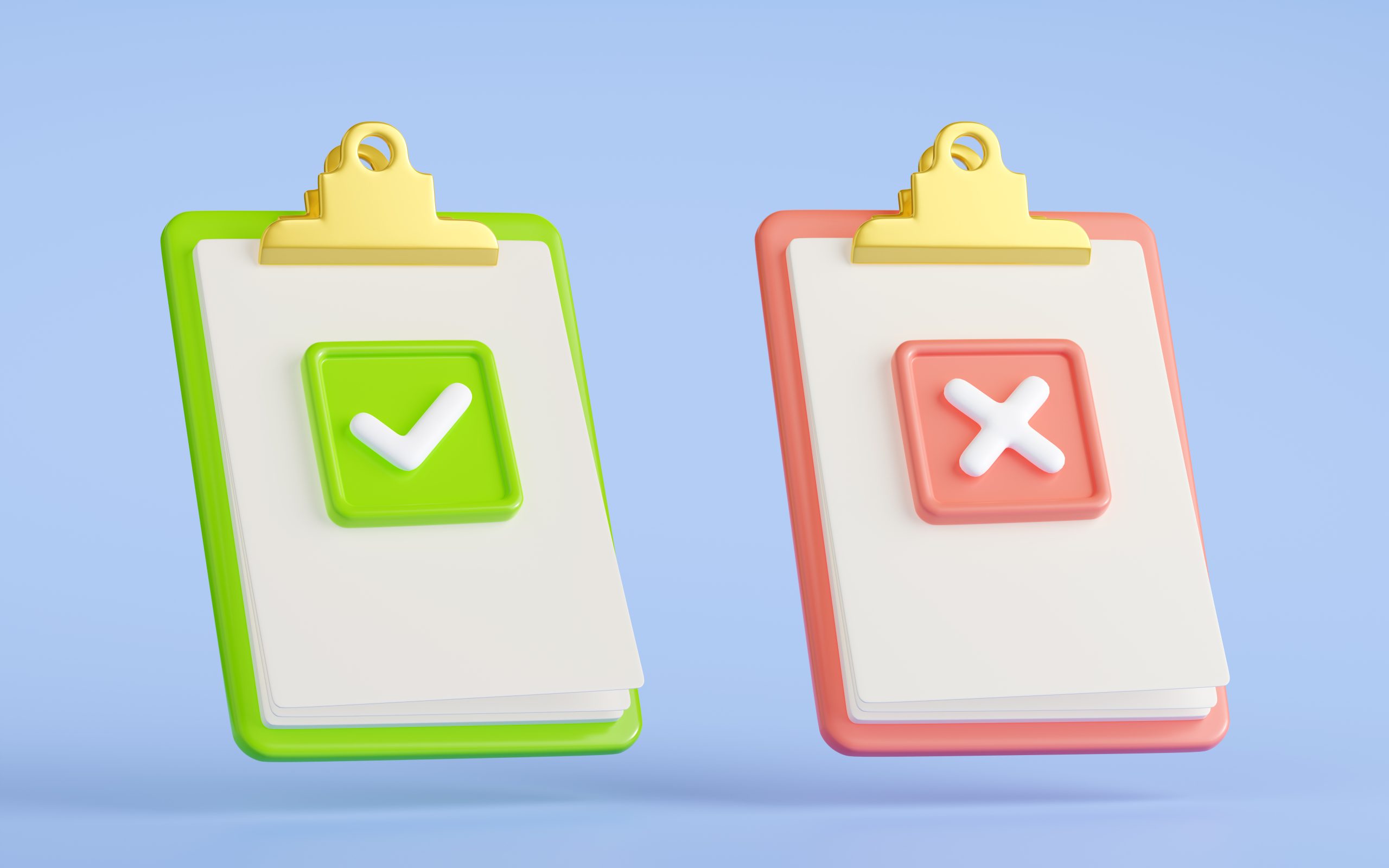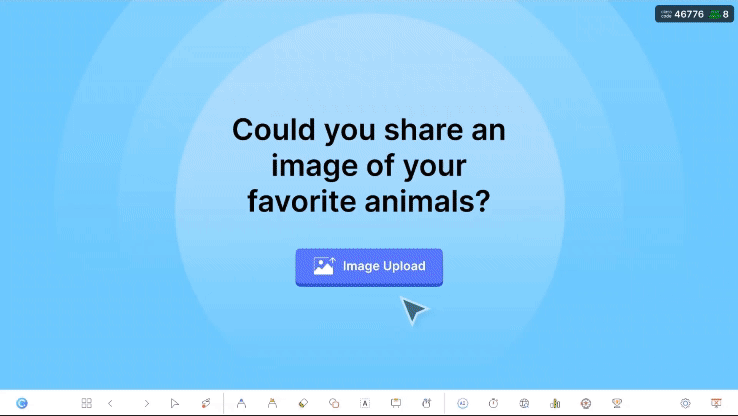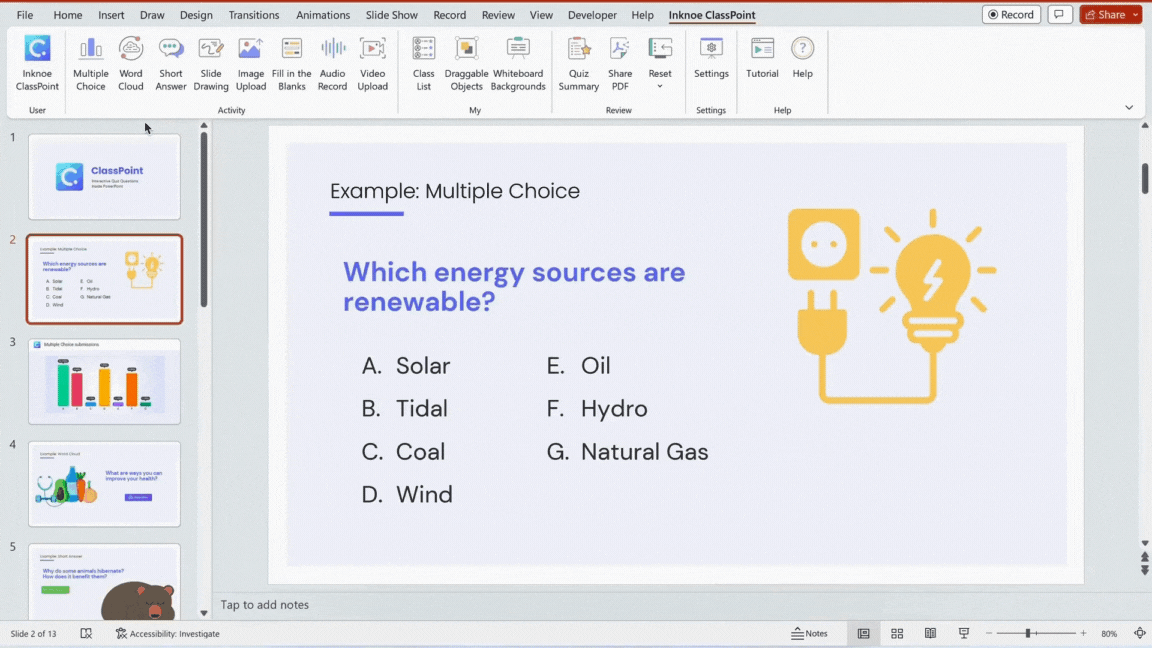500+ True or False Questions for Kids of All Ages (With FREE Downloadable PDF!)
Looking for a fun and interactive way to boost your child’s knowledge and turn learning into a game? Look no further than true or false questions! These simple yet engaging brain teasers go beyond rote memorization. True or false questions challenge kids to think critically, analyze information, and separate fact from fiction. With over 500 true or false questions for kids covering a variety of difficulty levels, this blog post provides hours of entertainment that will keep your child learning and wanting more. Let’s dive in!
Easy True or False Questions to Build Knowledge
- The ocean is salty. (True)
- Penguins can fly. (False)
- The Earth is round. (True)
- Seeds grow into plants. (True)
- All insects have six legs. (True)
- The sun is a giant ball of fire. (True)
- Apples grow on vines. (False)
- All butterflies are colorful. (True)
- Do all cars have four wheels? (True)
- Is a cat a type of fish? (False)
- Does water flow uphill? (False)
- Do birds have wings? (True)
- Is grass green? (True)
- Do dogs bark? (True)
- Does the sun come out at night? (False)
- Are books made of paper? (True)
- Do clouds float in the sky? (True)
- Do trees have leaves? (True)
- Rocks are soft. (False)
- Elephants can fly. (False)
- Rainbows appear after rain. (True)
- All fruits are sweet. (False)
- The moon orbits the Earth. (True)
- Fish live in water. (True)
- Cars can swim. (False)
- The sky is blue. (True)
- All snakes are poisonous. (False)
- Flowers bloom in spring. (True)
- Ice is hot. (False)
- People breathe underwater. (False)
- All birds lay eggs. (True)
- Rocks can float in water. (False)
- Tigers are herbivores. (False)
- Stars are made of cheese. (False)
- The Earth orbits the moon. (False)
- Cheetahs are slow runners. (False)
- Water boils at room temperature. (False)
- Giraffes have short necks. (False)
- Lightning is caused by the collision of clouds. (True)
- All spiders spin webs. (False)
- Rocks are alive. (False)
- All vegetables are green. (False)
- The capital of France is London. (False)
- All mammals lay eggs. (False)
- Earthworms have legs. (False)
- All planets in our solar system have moons. (False)
- The Atlantic Ocean is larger than the Pacific Ocean. (False)
- Diamonds are the hardest substance on Earth. (True)
- All birds can fly. (False)
- Watermelon is a vegetable. (False)
- Kangaroos live in Africa. (False)
- All trees lose their leaves in winter. (False)
- All clouds are made of water vapor. (True)
- Alligators are amphibians. (False)
- Salt melts ice. (True)
- Cars can swim. (False)
- Clouds are made of water vapor. (True)
- Giraffes have short necks. (False)
- Lightning is caused by clouds colliding. (True)
Medium True or False Questions to Challenge Young Thinkers
- A tomato is a vegetable. (False – It’s a fruit!)
- You can sneeze with your eyes open. (False – Try it!)
- Chocolate comes from a cheese factory. (False – It comes from the cocoa bean)
- The Great Wall of China can be seen from space with the naked eye. (False – It’s visible, but not with the naked eye)
- Chewing gum takes seven years to digest in your stomach. (False – Your body can’t digest it, but it passes through quickly.)
- Lightning never strikes the same place twice. (False – Lightning can strike the same spot multiple times.)
- Humans have five senses. (False – We actually have more than nine senses!)
- A diamond is the hardest substance on Earth. (True)
- The world is flat. (False – The Earth is round!)
- A banana is a vegetable. (False – It’s a fruit)
- You can hold your breath forever. (False)
- Chocolate milk comes from brown cows. (False)
- The world’s tallest mountain is on the moon. (False – It’s Mount Everest on Earth)
- Chewing gum takes seven years to digest. (False – Your body can’t digest it, but it passes through quickly)
- The five basic senses are taste, touch, smell, sight, and sound. (True)
- The only place with gravity is Earth. (False – All objects with mass have gravity)
- Do all snakes have fangs? (False – Some snakes don’t have fangs)
- Do all planets have rings? (False – Only some planets have rings, like Saturn)
- The Amazon River is the longest river in the world. (False – It’s the Nile)
- Goldfish have a three-second memory. (False – They can remember things for months)
- Spiders are insects. (False – Spiders are arachnids)
- Water is the only substance that expands when it freezes. (True)
- All deserts are hot during the day and cold at night. (False – Some deserts can be cold during the day and night)
- A human’s skin is the largest organ in the body. (True)
- The Arctic is the coldest place on Earth. (False – Some places in Antarctica are colder)
- Penguins only live in cold climates. (False – Some penguins live in warm climates)
- Lightning bugs produce electricity. (False – They produce light through a chemical reaction)
- The moon is made of cheese. (False – The moon is made of rock and dust)
- Hurricanes only occur in the summer. (False – Hurricanes can occur anytime, but they’re most common in late summer and early fall)
- Humans can’t survive without oxygen. (True)
- All dinosaurs were gigantic creatures. (False – Some dinosaurs were small)
- Pluto is the largest dwarf planet in the Kuiper Belt. (False – Eris is larger)
- The Statue of Liberty was a gift from France to the United States. (True)
- Cows can only moo in one tone. (False – They have a variety of vocalizations)
- Dolphins are fish. (False – They are mammals)
- The human body has more bones at birth than in adulthood. (True)
- Birds are the only animals that can fly. (False – Bats can fly too)
- Jupiter has rings like Saturn. (True)
- All rivers flow south to north. (False – Rivers flow in various directions)
- Ostriches bury their heads in the sand when scared. (False – They don’t do this)
- All spiders are poisonous. (False – Most spiders are not harmful to humans)
- All plants need sunlight to survive. (True)
- All diamonds are clear or white. (False – Diamonds can be various colors)
- All stars are the same size. (False – Stars come in different sizes)
- A full moon occurs once a month. (True)
- Snails are insects. (False – Snails are mollusks)
- The Great Pyramid of Giza is the oldest of the Seven Wonders of the Ancient World. (True)
- Lightning is hotter than the surface of the sun. (True)
- All fish breathe underwater using gills. (True)

Hard True or False Questions for Budding Scholars
- The estimated global population of the Earth is over 8 billion, which is significantly larger than the estimated number of grains of sand on all the beaches combined. (True)
- There are more stars in the universe than grains of sand on all the beaches on Earth. (True)
- Whales are mammals, not fish. (True)
- The boiling point of water is higher than 100 degrees Celsius at sea level. (True)
- The Amazon rainforest produces more than 20% of the world’s oxygen. (True)
- Goldfish have a three-second memory. (False)
- Venus is the closest planet to the Sun. (False)
- The Great Wall of China is visible from space. (False)
- Pluto is classified as a planet. (False)
- Humans can hibernate like bears. (False)
- The speed of light is faster than the speed of sound. (True)
- The longest river in the world is the Nile. (True)
- Diamonds are made from compressed coal. (False)
- The Earth’s core is made of solid iron. (False)
- Jupiter has the most moons in our solar system. (True)
- The Sahara Desert is the largest desert in the world. (False)
- Antarctica is the largest desert in the world. (True)
- The Statue of Liberty was a gift from France to England. (False)
- Lightning never strikes the same place twice. (False)
- Mount Everest is the tallest mountain above sea level. (True)
- The Mona Lisa is a painting by Vincent van Gogh. (False)
- The human brain stops growing after childhood. (False)
- All snowflakes have six sides. (True)
- The coldest temperature ever recorded on Earth was in Antarctica. (True)
- The Pacific Ocean is the largest ocean on Earth. (True)
- The human body has more than 200 bones. (False)
- There are more than 100 billion galaxies in the observable universe. (True)
- The Pyramids of Giza were built by slaves. (False)
- Bees can see all colors except red. (True)
- The speed of sound is faster in water than in air. (True)
- The Pacific Ocean is the largest ocean on Earth. (True)
- The human body has more than 200 bones. (False)
- There are more than 100 billion galaxies in the observable universe. (True)
- The Pyramids of Giza were built by slaves. (False)
- Bees can see all colors except red. (True)
- The speed of sound is faster in water than in air. (True)
- Mercury is the hottest planet in our solar system. (True)
- Octopuses have three hearts. (True)
- Mount Kilimanjaro is the tallest mountain in Africa. (True)
- All cacti are found in deserts. (False)
- Earth is the only planet in the solar system with liquid water on its surface. (True)
- The Great Wall of China is the longest man-made structure in the world. (True)
- Bananas grow on trees. (False)
- The first living organisms appeared on Earth approximately 4 billion years ago. (True)
- The Bermuda Triangle is located in the Pacific Ocean. (False)
- The Eiffel Tower was originally intended to be a temporary structure. (True)
- The northern lights are only visible from the North Pole. (False)
True or False Questions for Kids in High School
- The capital of Australia is Sydney. (False – It’s Canberra)
- The Great Barrier Reef is the world’s largest coral reef system. (True)
- Marie Curie discovered radium. (True)
- The Declaration of Independence was signed in 1776. (True)
- The Battle of Waterloo was fought in 1812. (False – It was fought in 1815)
- Shakespeare wrote “Romeo and Juliet” in the 16th century. (True)
- The human body has 206 bones. (True)
- The French Revolution began in 1789. (True)
- The ozone layer protects the Earth from ultraviolet radiation. (True)
- The Bill of Rights consists of 10 amendments to the United States Constitution. (True)
- The Eiffel Tower is located in London. (False – It’s in Paris)
- The atomic bomb was dropped on Hiroshima and Nagasaki during World War II. (True)
- The Nile River is the longest river in the world. (True)
- Leonardo da Vinci painted the Mona Lisa. (True)
- The metric system is based on multiples of 10. (True)
- Mount Kilimanjaro is the highest mountain in Africa. (True)
- The first moon landing occurred in 1969. (True)
- The Statue of Liberty was a gift from France to the United States. (True)
- The currency of Japan is the yen. (True)
- DNA stands for Deoxyribonucleic acid. (True)
- The Fahrenheit scale is based on the freezing and boiling points of water. (True)
- Australia is both a country and a continent. (True)
- The periodic table of elements was created by Dmitri Mendeleev. (True)
- The speed of light is approximately 300,000 kilometers per second. (True)
- The Renaissance period began in the 14th century. (True)
- The Louvre Museum is located in London. (False – It’s in Paris)
- The Earth’s atmosphere is composed primarily of nitrogen. (True)
- The Battle of Gettysburg was a decisive battle in the American Civil War. (True)
- The Panama Canal connects the Atlantic and Pacific Oceans. (True)
- The longest bone in the human body is the femur. (True)
- The Wright brothers invented the first successful airplane. (True)
- The Berlin Wall fell in 1989. (True)
- Vincent van Gogh cut off his own ear. (True)
- The World War I started in 1914 and ended in 1918. (True)
- The highest mountain in North America is Mount McKinley. (True)
- The pH scale measures acidity or alkalinity. (True)
- Jupiter is the largest planet in our solar system. (True)
- The United Nations was founded in 1945. (True)
- The human heart has four chambers. (True)
- Niagara Falls is located between the United States and Canada. (True)
- The International Space Station orbits the Earth. (True)
- The Mona Lisa was stolen from the Louvre in 1911. (True)
- The Spanish Civil War took place from 1936 to 1939. (True)
- The human brain stops growing at around age 30. (False – it stops growing at around age 25)
- The first successful vaccine was developed for smallpox. (True)
- The Black Death was a pandemic that occurred in the 14th century. (True)
- The prime meridian passes through Greenwich, England. (True)
- The Industrial Revolution began in the 18th century. (True)
- The Great Depression started in 1925. (False – it started in 1929)
- The Titanic sank in 1912 after hitting an iceberg. (True)

Vocabulary Builder True or False Questions for Kids
- A synonym is a word that has the opposite meaning of another word. (False – A synonym is a word that has a similar meaning)
- The word “excellent” means the same as “terrible.” (False)
- A noun is a person, place, or thing. (True)
- An antonym is a word that has the same meaning as another word. (False – An antonym is a word that has the opposite meaning)
- The word “beautiful” is an adjective. (True)
- The prefix “un-” often means “not” or “opposite of.” (True)
- The word “dog” is a verb. (False – It’s a noun)
- A synonym for “happy” could be “joyful.” (True)
- The word “honesty” is a noun. (True)
- An antonym for “hot” could be “cold.” (True)
- The word “run” is a preposition. (False – It’s a verb)
- A suffix is a group of letters added to the end of a word to change its meaning. (True)
- The word “fearless” is a verb. (False – It’s an adjective)
- A synonym for “big” could be “small.” (False – It could be “large”)
- The word “quickly” is an adverb. (True)
- An antonym for “fast” could be “slow.” (True)
- The prefix “pre-” often means “after.” (False – It means “before”)
- The word “beautifully” is an adjective. (False – It’s an adverb)
- A synonym for “sad” could be “happy.” (False – It could be “unhappy”)
- The word “book” is a verb. (False – It’s a noun)
- An antonym for “brave” could be “cowardly.” (True)
- The suffix “-less” often means “full of.” (False – It means “without”)
- The word “jumping” is a verb. (True)
- A synonym for “smart” could be “intelligent.” (True)
- The word “underneath” is an adjective. (False – It’s a preposition)
- An antonym for “light” could be “heavy.” (True)
- The prefix “bi-” often means “two.” (True)
- The word “dangerous” is a noun. (False – It’s an adjective)
- A synonym for “tired” could be “energetic.” (False – It could be “exhausted”)
- The word “singing” is an adverb. (False – It’s a verb)
- An antonym for “soft” could be “hard.” (True)
- The suffix “-er” often means “more.” (True)
- The word “happily” is an adjective. (False – It’s an adverb)
- A synonym for “brilliant” could be “dull.” (False – It could be “bright”)
- The prefix “mis-” often means “correctly.” (False – It means “wrongly” or “badly”)
- The word “swimming” is a noun. (False – It’s a verb)
- An antonym for “rich” could be “poor.” (True)
- The suffix “-est” often means “most.” (True)
- The word “delicious” is a verb. (False – It’s an adjective)
- A synonym for “angry” could be “calm.” (False – It could be “irritated”)
- The prefix “dis-” often means “not” or “opposite of.” (True)
- The word “running” is a noun. (False – It’s a verb)
- An antonym for “thick” could be “thin.” (True)
- The suffix “-ful” often means “without.” (False – It means “full of”)
- The word “quick” is a noun. (False – It’s an adjective)
- A synonym for “boring” could be “exciting.” (True)
- The prefix “anti-” often means “for.” (False – It means “against”)
- The word “playing” is a verb. (True)
- An antonym for “wet” could be “dry.” (True)
- The suffix “-tion” often turns a verb into a noun. (True)
True or False for Kids: Holidays Edition
- Halloween is celebrated on October 31st. (True)
- Christmas is celebrated on December 25th. (True)
- Valentine’s Day is celebrated on February 14th. (True)
- Thanksgiving is celebrated in Canada in November. (False – It’s celebrated in October)
- Independence Day in the United States is on July 4th. (True)
- April Fools’ Day is celebrated on April 1st. (True)
- Groundhog Day is celebrated on February 3rd. (False – it’s celebrated on February 2nd)
- Diwali is a Hindu festival celebrated in December. (False – It’s celebrated in October or November)
- Chinese New Year always falls on January 1st. (False – It’s based on the lunar calendar and varies)
- Eid al-Fitr marks the end of Ramadan. (True)
- St. Patrick’s Day is celebrated in Ireland only. (False – It’s celebrated worldwide)
- Hanukkah is celebrated for eight days. (True)
- Boxing Day is celebrated on December 26th. (True)
- Mother’s Day is celebrated on the second Sunday in May. (True)
- Labor Day is celebrated on May 1st in most countries. (False – It varies, but in the US, it’s in September)
- Easter always falls on a Sunday. (True)
- Kwanzaa is a week-long celebration starting on December 26th. (True)
- Bastille Day is celebrated in France. (True)
- The Winter Solstice always occurs on December 21st. (False – It varies slightly)
- New Year’s Eve is celebrated on December 31st. (True)
- Cinco de Mayo is Mexico’s Independence Day. (False – It commemorates the Battle of Puebla)
- Canada Day is celebrated on July 1st. (True)
- Rosh Hashanah is the Jewish New Year. (True)
- Memorial Day is celebrated in November in the United States. (False – It’s celebrated in May)
- Eid al-Adha is also known as the Feast of Sacrifice. (True)
- Veterans Day is celebrated on November 11th. (True)
- Mardi Gras is celebrated in Brazil. (False – It’s celebrated in New Orleans, USA, and other places)
- Anzac Day is celebrated in Australia and New Zealand. (True)
- Martin Luther King Jr. Day is celebrated on the third Monday in January. (True)
- Oktoberfest is held annually in Munich, Germany. (True)
- Holi is known as the Festival of Lights. (False – It’s known as the Festival of Colors)
- Yom Kippur is the holiest day in the Jewish calendar. (True)
- Carnival is celebrated in Venice, Italy. (True)
- Guy Fawkes Night is celebrated in the United States. (False – It’s celebrated in the UK)
- Hanukkah is also known as the Festival of Lights. (True)
- Labor Day is celebrated on the first Monday in September in the United States. (True)
- Christmas is celebrated on December 24th in most countries. (False – It’s on December 25th)
- Day of the Dead is a Mexican holiday celebrated in October. (True)
- St. Andrew’s Day is celebrated in Ireland. (False – It’s celebrated in Scotland)
- Vesak Day commemorates the birth, enlightenment, and death of Buddha. (True)
- Kwanzaa lasts for seven days. (True)
- Oktoberfest is celebrated in Berlin. (False – It’s celebrated in Munich)
- Remembrance Day is celebrated on November 11th in the United States. (False – It’s celebrated in other countries like Canada and the UK)
- Labor Day is celebrated on May 1st in the United States. (False – It’s in September)
- Independence Day in the United States commemorates the signing of the Declaration of Independence. (True)
- Christmas is celebrated on December 25th in Russia. (True)
- Hanukkah lasts for 12 days. (False – It lasts for 8 days)
- Thanksgiving in the United States always falls on the third Thursday in November. (False – it’s celebrated on the fourth Thursday)

True or False Questions for the Bookworms
- “The Great Gatsby” was written by Ernest Hemingway. (False – It was written by F. Scott Fitzgerald)
- J.K. Rowling is the author of the Harry Potter series. (True)
- “To Kill a Mockingbird” was written by Harper Lee. (True)
- Charles Dickens wrote “Pride and Prejudice.” (False – It was written by Jane Austen)
- “The Lord of the Rings” trilogy was written by J.R.R. Tolkien. (True)
- “1984” was written by George Orwell. (True)
- “The Catcher in the Rye” was written by J.D. Salinger. (True)
- “The Great Gatsby” was written by F. Scott Fitzgerald. (True)
- “Moby-Dick” was written by Herman Melville. (True)
- William Shakespeare wrote “Romeo and Juliet.” (True)
- “The Hunger Games” series was written by Suzanne Collins. (True)
- “The Chronicles of Narnia” series was written by J.R.R. Tolkien. (False – It was written by C.S. Lewis)
- “The Alchemist” was written by Paulo Coelho. (True)
- “The Secret Garden” was written by Frances Hodgson Burnett. (True)
- “The Jungle Book” was written by Rudyard Kipling. (True)
- “The Odyssey” was written by Homer. (True)
- “Jane Eyre” was written by Charlotte Brontë. (True)
- Katniss Everdeen is a character in “The Hunger Games” series. (True)
- Ebenezer Scrooge is a character in “A Tale of Two Cities.” (False – Ebenezer Scrooge is a character in “A Christmas Carol” by Charles Dickens)
- Holden Caulfield is a character in “The Catcher in the Rye.” (True)
- Sherlock Holmes is a character in “Pride and Prejudice.” (False – Sherlock Holmes is a character in detective stories by Sir Arthur Conan Doyle)
- Gandalf is a character in “The Chronicles of Narnia” series. (False – Gandalf is a character in “The Lord of the Rings” series.)
- Huckleberry Finn is a character in “The Adventures of Tom Sawyer.” (True)
- Jay Gatsby is a character in “The Great Gatsby.” (True)
- Scout Finch is a character in “To Kill a Mockingbird.” (True)
- Ebenezer Scrooge is a character in “The Great Gatsby.” (False – Ebenezer Scrooge is a character in “A Christmas Carol” by Charles Dickens)
- Captain Ahab is a character in “Moby-Dick.” (True)
- Romeo Montague is a character in “Romeo and Juliet.” (True)
- Bilbo Baggins is a character in “The Hobbit.” (True)
- Miss Havisham is a character in “Great Expectations.” (True)
True or False Questions About Pioneering Inventions
- The telephone was invented by Alexander Graham Bell. (True)
- Thomas Edison invented the light bulb. (True)
- The theory of relativity was formulated by Isaac Newton. (False – It was formulated by Albert Einstein)
- The printing press was invented by Johannes Gutenberg. (True)
- The discovery of penicillin revolutionized medicine and was made by Alexander Fleming. (True)
- The first successful airplane flight was made by the Wright brothers, Orville and Wilbur. (True)
- The discovery of the structure of DNA was made by James Watson and Francis Crick. (True)
- The steam engine was invented by James Watt. (True)
- Albert Einstein developed the theory of general relativity. (True)
- The first successful human heart transplant was performed by Christiaan Barnard. (True)
- The invention of the internet is credited to Tim Berners-Lee. (True)
- Galileo Galilei discovered the law of gravity. (False – It was discovered by Sir Isaac Newton)
- Marie Curie discovered the radioactive element radium. (True)
- The first controlled, sustained, powered flight was achieved by the Montgolfier brothers. (False – It was achieved by the Wright brothers)
- The discovery of X-rays is credited to Wilhelm Conrad Roentgen. (True)
- The first successful vaccine was developed by Louis Pasteur. (True)
- The wheel was invented by the ancient Greeks. (False – It’s unclear who invented the wheel, but it was likely developed independently in multiple civilizations)
- Leonardo da Vinci invented the parachute. (True)
- Johannes Kepler formulated the laws of planetary motion. (True)
- The discovery of the electron is credited to J.J. Thomson. (True)
- The compass was invented in ancient China. (True)
- Alexander Fleming discovered penicillin accidentally when mold spores landed in his petri dish. (True)
- The first successful heart transplant was performed in the 20th century. (True)
- Marie Curie discovered two new elements, polonium and radium. (True)
- The discovery of fire is attributed to the Neanderthals. (True)
- The discovery of America is credited to Christopher Columbus. (True)
- Isaac Newton discovered the law of universal gravitation. (True)
- Benjamin Franklin invented the lightning rod. (True)
- The first computer, known as the ENIAC, was invented in the 19th century. (False – It was invented in the 20th century)
- The theory of evolution was formulated by Charles Darwin. (True)
- The discovery of the New World by Europeans led to the Columbian Exchange. (True)
- Johannes Gutenberg invented the printing press in the 15th century. (True)
- The microwave oven was invented by Percy Spencer. (True)
- The discovery of the structure of DNA is attributed to Rosalind Franklin. (False – It was discovered by James Watson and Francis Crick)
- The theory of relativity revolutionized physics and was formulated by Albert Einstein. (True)
- The first successful artificial satellite, Sputnik 1, was launched by the United States. (False – It was launched by the Soviet Union)
- The discovery of radioactivity is credited to Marie Curie. (True)
- The discovery of the polio vaccine is credited to Albert Sabin. (True)
- The discovery of gravity is attributed to Galileo Galilei. (False – It was discovered by Sir Isaac Newton)
- The Internet was invented by a single person. (False – It’s the result of the collaboration of many researchers and institutions)
- The discovery of the smallpox vaccine is credited to Edward Jenner. (True)
- The invention of the steam engine is credited to James Watt. (True)
- The discovery of America by Europeans led to the colonization of the Americas. (True)
- The first successful human heart transplant was performed in the 21st century. (False – It was performed in the 20th century)
- The discovery of insulin is credited to Frederick Banting and Charles Best. (True)
- The invention of the telephone revolutionized communication and was made by Thomas Edison. (False – It was made by Alexander Graham Bell)
- The invention of the printing press facilitated the spread of knowledge and was made by Johannes Gutenberg. (True)
- The discovery of the laws of motion is attributed to Isaac Newton. (True)
- The discovery of electricity is credited to Benjamin Franklin. (True)
- The discovery of penicillin was a deliberate experiment conducted by Alexander Fleming. (False – It was discovered accidentally)

True or False Questions for the History Buffs
- Christopher Columbus discovered America in the 15th century. (False – It was the 15th century)
- The Declaration of Independence was signed in 1776. (True)
- World War I started in 1914 and ended in 1918. (True)
- Abraham Lincoln was the 14th President of the United States. (False – He was the 16th President)
- Cleopatra was the last pharaoh of ancient Egypt. (True)
- The Cold War was a conflict between the United States and China. (False – It was between the United States and the Soviet Union)
- The French Revolution began in the 18th century. (True)
- The Renaissance period started in the 14th century. (True)
- Julius Caesar was the first emperor of Rome. (False – He was a dictator, not an emperor)
- The Industrial Revolution began in the 18th century. (True)
- The Wright brothers invented the first successful airplane. (True)
- The first moon landing occurred in 1968. (False – It occurred in 1969)
- Joan of Arc was a heroine of France during the Hundred Years’ War. (True)
- The ancient Greek civilization was known for its contributions to philosophy and democracy. (True)
- The Berlin Wall fell in 1990. (False – It fell in 1989)
- The Battle of Hastings took place in 1066. (True)
- The Magna Carta was signed in the 13th century. (True)
- The Black Death was a pandemic that occurred in the 15th century. (False – It occurred in the 14th century)
- Alexander the Great was a king of ancient Egypt. (False – He was a king of Macedonia)
- The American Civil War ended in 1865. (True)
- The Aztec civilization was located in present-day Mexico. (True)
- The Spanish Armada was defeated by England in 1588. (True)
- Napoleon Bonaparte was the emperor of France. (True)
- The Battle of Gettysburg was a decisive battle in the American Civil War. (True)
- The Vikings were seafaring warriors from Scandinavia. (True)
- The Treaty of Versailles ended World War II. (False – It ended World War I)
- Martin Luther King Jr. led the Civil Rights Movement in the United States during the 1960s. (True)
- The Trojan War was fought between the Greeks and the Romans. (False – It was fought between the Greeks and the Trojans)
- The Mayans were an ancient civilization that lived in Central America. (True)
- The Russian Revolution took place in 1917. (True)
- The Great Fire of London occurred in the 17th century. (True)
- The Roman Empire reached its height during the reign of Julius Caesar. (False – It reached its height during the reign of Augustus)
- The Treaty of Paris ended the American Revolutionary War. (True)
- The Boston Tea Party took place in 1773. (True)
- The Inca civilization was located in present-day Peru. (True)
- The Battle of Waterloo was fought in 1815. (True)
- Queen Elizabeth I ruled England during the Tudor period. (True)
- The Salem Witch Trials took place in the 17th century in Massachusetts. (True)
- The Magna Carta established the principle of habeas corpus. (True)
- The War of 1812 was fought between the United States and Britain. (True)
- The Great Wall of China was built to protect against invaders from the north. (True)
- The Emancipation Proclamation was issued by Abraham Lincoln during the Civil War. (True)
- The Renaissance was a period of cultural rebirth that began in Italy. (True)
- The Spanish conquistadors conquered the Aztec Empire in the 16th century. (True)
- The Battle of Stalingrad was a turning point in World War II. (True)
- The Louisiana Purchase doubled the size of the United States in the 19th century. (True)
- The Wright brothers’ first successful flight lasted for more than an hour. (False – It lasted for 12 seconds)
- The Statue of Liberty was a gift from France to England. (False – It was a gift from France to the United States)
Science Brain Teasers for Kids
- Dinosaurs are still alive today. (False – They became extinct millions of years ago)
- Magnets attract some metals and repel others. (True)
- Fire needs oxygen to burn. (True)
- The Earth spins on its axis, which causes day and night. (True)
- The moon orbits the Earth. (True)
- Rocks can be broken down into smaller pieces over time through weathering. (True)
- Scientists use microscopes to see very small things. (True)
- Astronauts travel to space in rockets. (True)
- Mitochondria are the “powerhouse of the cell” because they generate electricity. (False – They generate ATP, a form of energy usable by cells, not electricity)
- Diamonds are the hardest natural substance on Earth. (False – A newly discovered form of carbon called Lonsdaleite is even harder)
- The Earth is the only planet in our solar system with water. (False – Mars also has water)
- The process of water turning into vapor is called condensation. (False – It’s called evaporation)
- Electrons orbit the nucleus of an atom in perfect circles. (False – Electrons exist in probability clouds, not perfect circles)
- Sound travels faster in air than in water. (False – Sound travels faster in water)
- The chemical symbol for gold is Au. (True)
- The process of a liquid turning into a gas is called condensation. (False – It’s called vaporization)
- The Earth is the largest planet in our solar system. (False – Jupiter is the largest)
- The process of plants releasing water vapor into the air is called transpiration. (True)
- The Earth’s moon is larger than the planet Mercury. (False – Mercury is larger)
- Lightning never strikes the same place twice. (False)
- Hummingbirds are the only birds that can fly backward. (True)
- Water boils at 100 degrees Celsius. (True)
- The chemical symbol for carbon dioxide is CO2. (True)
- The chemical symbol for helium is He. (True)

Pop Culture Showdown: Fact or Fiction?
- The main color of SpongeBob SquarePants is purple. (False – It’s yellow)
- Beyoncé is a famous actress. (True – she’s a musician AND an actress)
- “Star Wars” is a series of movies set in space. (True)
- The “Minecraft” video game was released in the 1990s. (False – It was released in 2009)
- The “Avengers” are a group of superheroes from Marvel Comics. (True)
- “Paw Patrol” is a cartoon about a group of firefighter dogs. (False – They are rescue dogs)
- Pikachu is a character in the “Pokémon” series. (True)
- Justin Bieber is a professional basketball player. (False – He’s a singer)
- The “Minions” are characters from the movie “Despicable Me.” (True)
- Batman’s alter ego is Bruce Wayne. (True)
- “Fortnite” is a popular video game released in the 1980s. (False – It was released in 2017)
- Taylor Swift is known for her career as a chef. (False – She’s a singer)
- Iron Man’s real name is Tony Stark. (True)
- The main character in “The Hunger Games” series is named Katniss Everdeen. (True)
- “Scooby-Doo” is a cartoon about a detective dog and his friends. (True)
- Dora the Explorer’s best friend is named Benny. (False – Her best friend is Boots)
- “The Lion King” is a Disney movie about lions in Africa. (True)
- One Direction is a boy band from the United States. (False – They are from the United Kingdom)
- The character Homer Simpson is from the TV show “Family Guy.” (False – He’s from “The Simpsons”)
- The actress who portrays Hermione Granger in the “Harry Potter” movies is Emma Watson. (True)
- “Stranger Things” is a TV series set in the 1980s. (True)
- The main character in “The Legend of Zelda” video game series is named Zelda. (False – His name is Link)
- SpongeBob SquarePants lives in a pineapple under the sea. (True)
- “The Walking Dead” is a TV series about a group of survivors in a post-apocalyptic world. (True)
- The superhero known as Captain America is also called Steve Rogers. (True)
- “Cinderella” is a Disney princess known for her glass slippers. (True)
- Lady Gaga’s real name is Stefani Joanne Angelina Germanotta. (True)
- “Jurassic Park” is a movie series about time-traveling dinosaurs. (False – It’s about genetically cloned dinosaurs)
- The main character in “Winnie the Pooh” is a rabbit named Tigger. (False – It’s a bear named Winnie the Pooh)
- “The Simpsons” is the longest-running American animated series. (True)
- The character known as Darth Vader is from the “Star Wars” series. (True)
- “The Princess and the Frog” is a Disney movie set in New York City. (False – It’s set in New Orleans)
- Michael Jackson was known as the “King of Pop.” (True)
- “Dora the Explorer” is a cartoon about a girl who solves mysteries. (True)
- The superhero known as Wonder Woman is from Marvel Comics. (False – She’s from DC Comics)
- “The Office” is a mockumentary TV series set in a paper company. (True)
- The character known as Iron Man is from the DC Comics universe. (False – He’s from Marvel Comics)
- “Frozen” is a Disney movie about two sisters, Elsa and Anna. (True)
- “The Hunger Games” movie series is based on a trilogy of books. (True)
- The character known as Black Widow is from the “Harry Potter” series. (False – She’s from the “Avengers” series)
- “Pirates of the Caribbean” is a movie series about pirates. (True)
- Ariana Grande started her career as a child actress on Disney Channel. (True)
- “Sesame Street” is a TV show primarily aimed at teenagers. (False – It’s aimed at preschoolers)
- “Twilight” is a series of books and movies about vampires. (True)
- The character known as Wolverine is from the “X-Men” series. (True)
- “The Avengers” movie series is based on DC Comics characters. (False – It’s based on Marvel Comics characters
Looking for more questions to spice up your teaching, try these common sense questions, poll questions, hot seat questions, icebreaker questions, this or that questions and important questions you must ask your students!
Pro Tips to Elevate These True or False Questions for Maximum Engagement
True or False questions can be a cornerstone for interactive learning and entertainment. But to truly captivate your audience, you need to go beyond basic facts. Here’s a detailed look at how to craft and deliver your True or False questions for maximum engagement:
Gamified Quizzes

Engage your audience with interactive tools that offer gamification features for your true or false quizzes. Consider introducing the following gamification elements to these true or false questions for kids:
- Interactive Quizzes and Instant Feedback: Turn these questions into an interactive experience using quick live polls. Teachers can also reformat these true or false questions into an interactive multiple-choice quiz to provide instant feedback.
- Timed Challenges: Adding a time limit creates a sense of urgency and excitement, encouraging quick thinking and recall.
- Scoring Systems: Assign points based on difficulty or speed to create a competitive atmosphere.
- Leaderboards: Display a leaderboard showcasing top scorers, fostering healthy competition, and motivating users to improve.
Gamification offers a multitude of benefits to improve participation and motivation. For more ideas on how to gamify your activities, check out this list of 200+ funny trivia questions and our Family-Feud-inspired PowerPoint template!
Multimedia Integration

Engaging multimedia elements will captivate your students’ attention and reinforce understanding, making the learning process more dynamic. By adding visual and auditory elements, you can also cater to different learning styles, making this activity more inclusive to everyone in the audience.
- Enhance with visuals: Incorporate high-quality images, illustrations, or infographics related to the questions. Visuals can break up text, cater to visual learners, and enhance memory and understanding.
- Incorporate videos and audio: Consider using short video clips or audio snippets to introduce a concept or provide context for a question. This can be particularly engaging for auditory learners and add variety to the experience.
Learn how to manage classrooms effectively with these proven strategies. Also, find out how to engage shy students and give feedback to students with our tips and tricks from the pros.
Adapt Questions to Learning Levels

Tailor the difficulty level of the true or false questions to match the learning levels and interests of your audience as part of your differentiated instruction in the classroom. The key is to tailor the content and difficulty to resonate with your audience.
- Difficulty Spectrum: Craft a mix of easy (basic facts), moderate (requires some knowledge), and challenging (pushes critical thinking) questions.
- Connect to Existing Knowledge: Use topics your audience is familiar with to create a sense of connection and encourage participation.
- Learning Gaps as Stepping Stones: Include a few questions that might be slightly above their current knowledge level to spark curiosity and motivate exploration.
- Multiple Levels Within a Theme: Even within a theme, have questions of varying difficulty to cater to diverse skill sets.
Bloom’s Taxonomy is a great framework to refer to when trying to gauge understanding. Check out our comprehensive guide on how to tailor your lessons or activities based on Bloom’s Taxonomy.
Final Thoughts
With over 500 true or false questions for kids of all ages at your fingertips, along with our downloadable free PDF and expert tips for engaging questions, you’re all set for a trivia adventure like no other! Remember, it’s not just about getting the answers right—it’s about sparking curiosity, nurturing a passion for learning, and transforming knowledge acquisition into an enjoyable journey. By keeping things interesting, interactive, and, above all, fun, you’ll not only deepen your understanding but also cultivate a lifelong love for exploration and discovery. So, dive in, challenge yourself, and let the joy of learning propel you forward!
Comments
Post a Comment